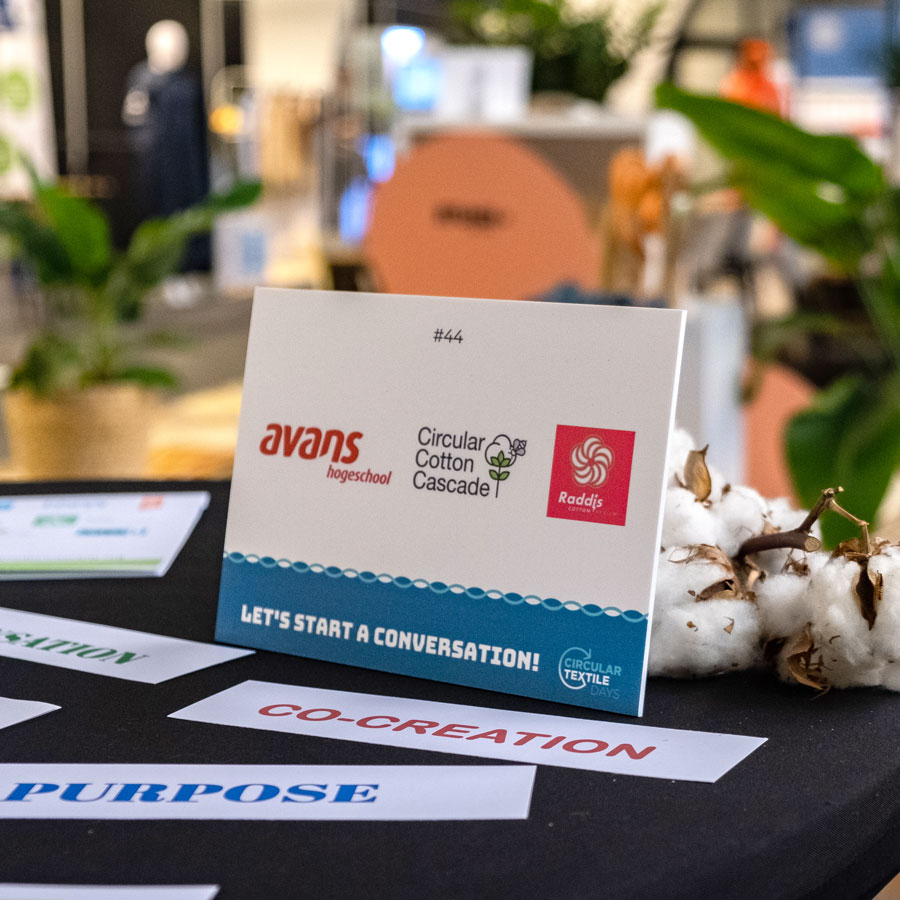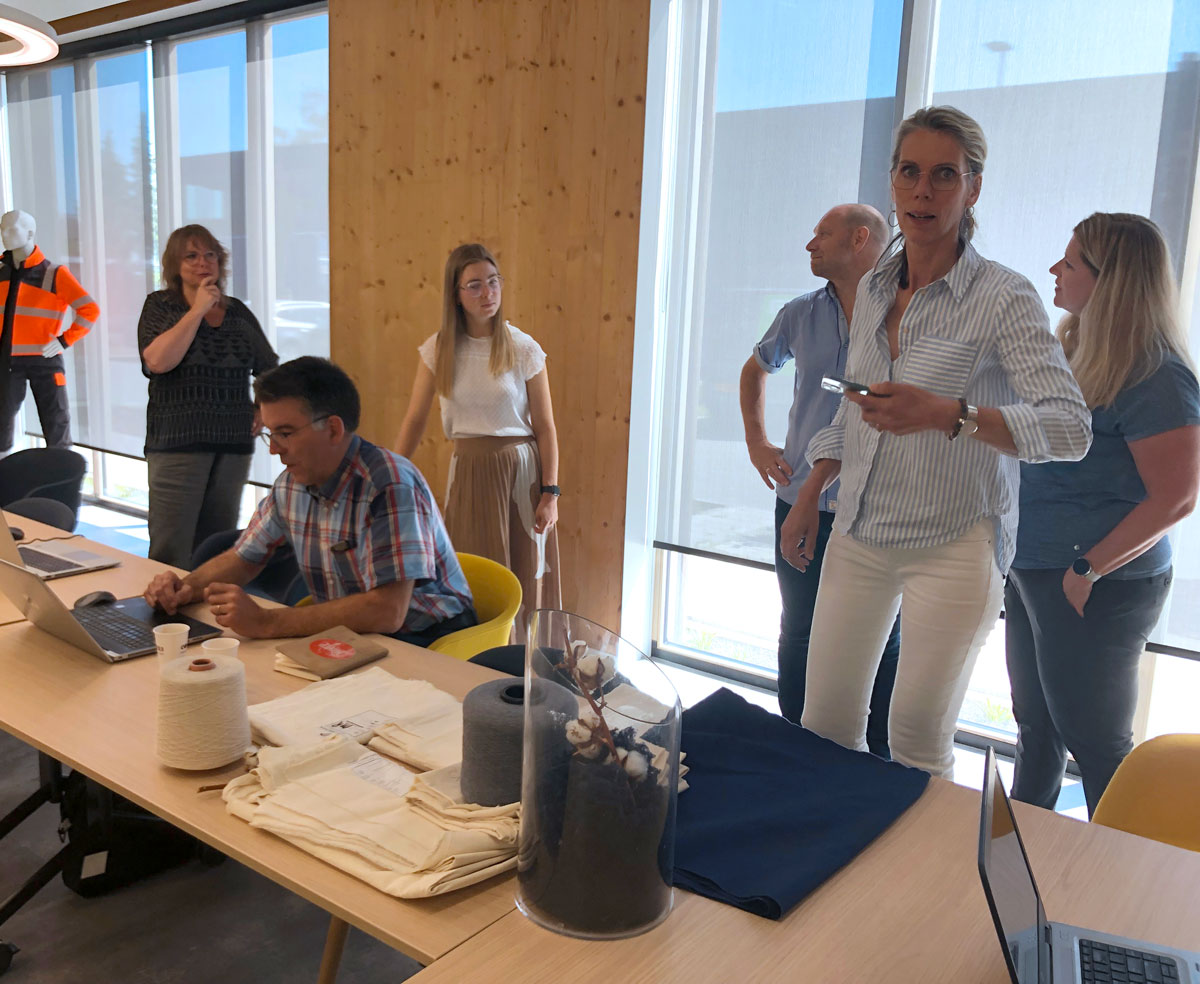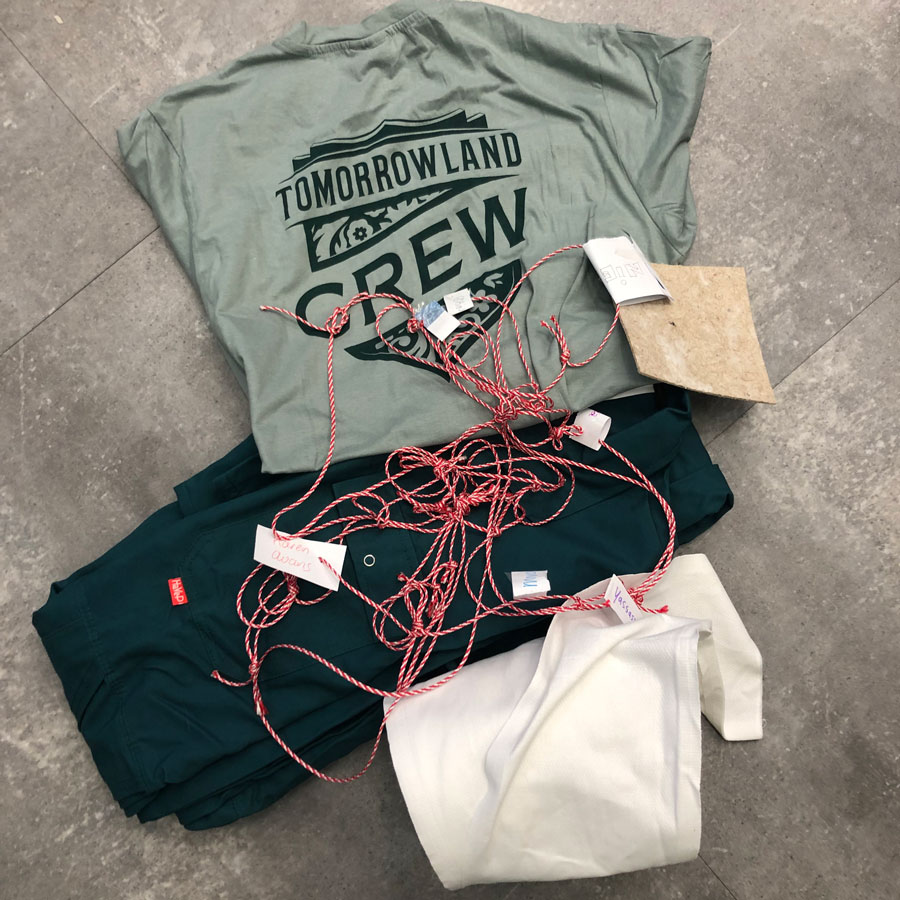Collaborative
business models
• Collaborative Business:
regenerative & circular scenario’s
• Balanced and intertwined system
• Conscious contracting
Collaborative business models
Any circular cascade is based on Collaborative Business Models, because circularity is not possible within just one entity.

Collaboration during Circular Textile Days

Workshop HAVEP

Workshop Culture & Values, HAVEP
System Change towards regenerative and circular approaches
We are investigating system change in a complete chain approach: starting from the cotton seed (the farmers in India who aim to achieve a regenerative impact with the cotton seed), utilizing the existing infrastructure, to controlled distribution and collection. Sorting takes place into various processing routes with the final application results in a product that is returned to the biosphere.
Conscious Contracting
is a contemporary approach to contract negotiation and management that emphasizes transparency, collaboration, and alignment of values and objectives between parties involved in a business agreement.
Conscious contracting places a strong emphasis on building trust and fostering a positive working relationship.
Life cycle approach for decreasing the need for virgin natural resources
We make sure that the cotton used in products lasts a long time and is designed to be reused or recycled when it’s no longer needed.
“Higher on the Ladder” model
We will use the ESB model (from reusing steel in office buildings). This plan, called the “Higher on the Ladder” model, has four steps:
(1) having a vision,
(2) learning together,
(3) building a network, and
(4) designing collaborative business models.
Collaborative Business Guide
Through collaborative workshops we aim to develop the collaborative business model and come up with principles for a sustainable cycle of using materials. These principles will be like a guide that can be used in other situations.
UPDATES
This research project has been granted a RAAK-mkb subsidy by Regieorgaan SIA. Regiorgaan SIA encourages the professionalisation and strengthens the quality of applied research in universities of applied sciences in the Netherlands. Universities of applied sciences in the Netherlands carry out applied research which arises from issues or problems in practice. Initator: Yassasree B.V. as part of the @GVKSociety. Project lead: Avans University of Applied Science.
Read about the project on the SIA website (Dutch)
